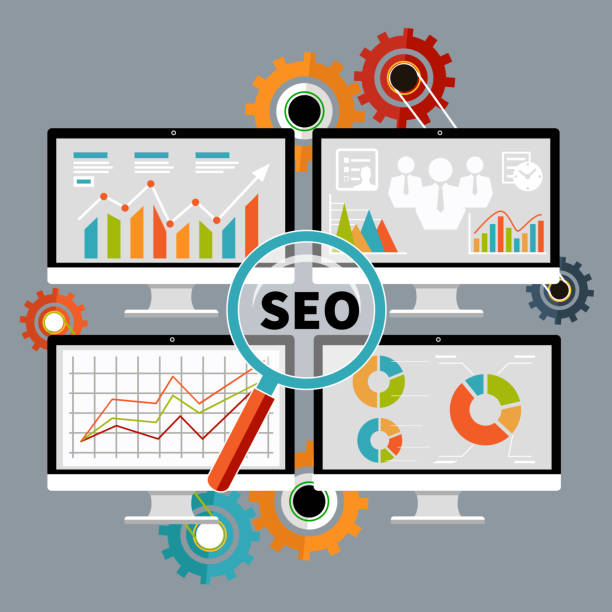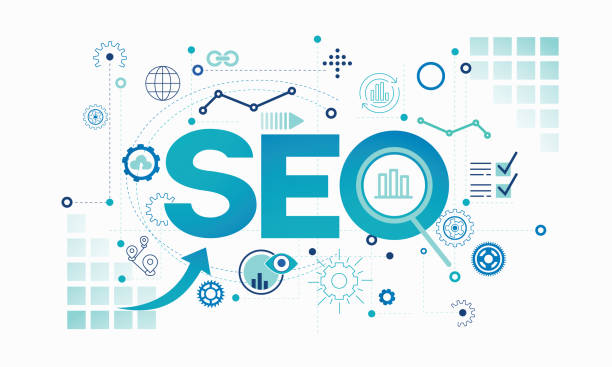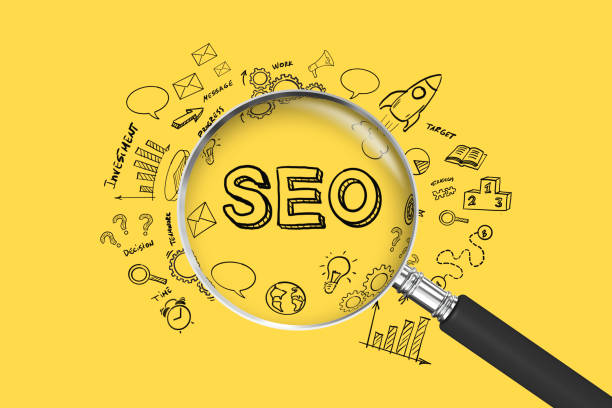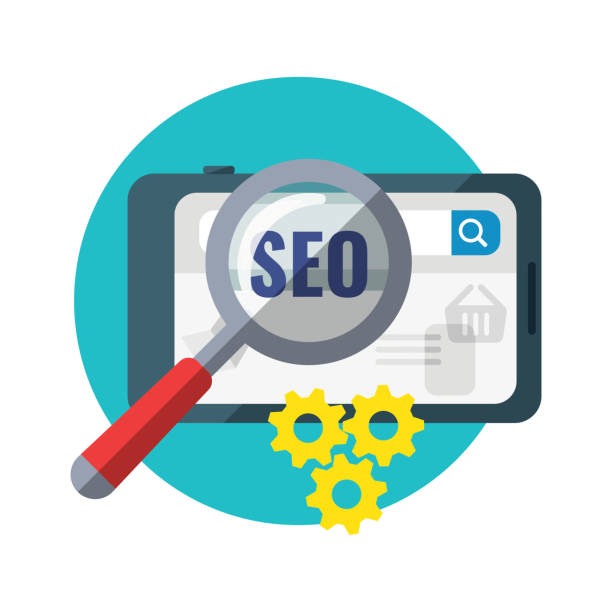What is SEO and why is it important?

What is SEO and why is it important?
SEO, or Search Engine Optimization (SEO), is a set of techniques and strategies used to improve a website’s ranking in search engine results like Google, Bing, and DuckDuckGo.
The main goal of SEO is to increase organic (unpaid) website traffic.
Imagine your website is a store; SEO is like placing the store sign in a busy location.
The better the sign is seen, the more customers enter the store.
In the digital world, #SEO takes on this role.
The importance of SEO stems from the fact that most internet users rely on search engines to find the information, products, or services they need.
If your website appears high in search results, the likelihood of users visiting and interacting with it increases.
This can lead to increased sales, attracting new customers, enhancing brand awareness, and improving website credibility.
SEO is not just about visibility; it also involves a better user experience; a website that is well-optimized for SEO is usually faster, more user-friendly, and offers more valuable information.
Worried about losing customers because you don’t have a professional e-commerce website?
With e-commerce website design by Rasawweb, forget these worries!
✅ Significant increase in sales and visitor-to-customer conversion rates
✅ Professional and user-friendly design that builds customer trust
⚡ Get free consultation from Rasawweb
Familiarity with SEO Types: On-Page, Off-Page, and Technical

Familiarity with SEO Types: On-Page, Off-Page, and Technical
SEO can be divided into three main categories: On-Page SEO, Off-Page SEO, and Technical SEO.
Each of these categories focuses on different aspects of the website and plays a crucial role in improving its ranking.
- On-Page SEO: Optimization of elements within the website such as content, title tags, meta descriptions, URL structure, images, and internal links.
The goal of On-Page SEO is to provide relevant and high-quality content to users and search engines. - Off-Page SEO: Includes actions performed outside the website, such as link building (acquiring links from other websites), social media, content marketing, and branding.
The goal of Off-Page SEO is to increase the website’s authority and popularity in the eyes of search engines. - Technical SEO: Optimization of the website’s technical aspects such as loading speed, mobile compatibility, site structure, sitemap, security, and accessibility for search engines.
The goal of Technical SEO is to ensure that the website can be easily crawled, indexed, and understood by search engines.
The right combination of these three types of SEO will yield the best results in improving website ranking.
Neglecting any of these aspects can hinder the achievement of SEO goals.
Moz is a good resource for more information on SEO.
Keyword Research: Finding the Best Phrases to Target

Keyword Research: Finding the Best Phrases to Target
Keyword research is the cornerstone of any successful SEO strategy.
Keywords are the phrases users type into search engines to find the information, products, or services they need.
Keyword research helps you understand what users are looking for and how to optimize your website to attract them.
The keyword research process includes the following steps:
- Define Objectives: Before starting research, determine what you want to achieve with SEO.
Do you want to increase sales, expand brand awareness, or boost website traffic? - Brainstorming: Create a list of words and phrases related to your business.
Use online tools like Ahrefs Keywords Explorer, KeywordTool.io, and Ubersuggest to find more ideas. - Competitor Analysis: Examine the keywords your competitors rank for.
This will help you identify new opportunities. - Evaluate Search Volume and Competition: Check the search volume of keywords to understand how popular they are.
Also, assess the level of competition for each keyword. - Select Keywords: Based on search volume, competition, and relevance to your business, choose the best keywords.
Remember that keywords should be natural and relevant to your website’s content.
Overusing keywords (Keyword Stuffing) can lead to your website being penalized by search engines.
Choosing the right keywords and using them intelligently is a big step towards improving your website’s SEO.
| Keyword | Monthly Search Volume | Competition Level |
|---|---|---|
| SEO Training | 1200 | Medium |
| Website SEO | 900 | High |
| Website Optimization | 700 | Medium |
| What is SEO | 500 | Low |
Content Optimization: Creating Valuable and Engaging Content

Content Optimization: Creating Valuable and Engaging Content
Content is king! This phrase is often heard in the world of SEO and indicates the high importance of content in improving website ranking.
Quality and valuable content not only attracts users but also satisfies search engines.
To optimize your content, pay attention to the following tips:
- Original and Unique Content: Avoid copying others’ content and produce original and unique content.
- Provide Useful and Accurate Information: Your content should provide useful and accurate information to users.
Avoid providing incorrect or misleading information. - Use Keywords: Use keywords naturally within your content.
Avoid excessive use of keywords. - Proper Structure: Divide your content into smaller sections and use headings, subheadings, lists, and images to improve readability.
- Image Optimization: Optimize images using alternative text (Alt Text) and reduce their size to increase page loading speed.
- Content Updates: Regularly update your content so that its information is always accurate and up-to-date.
Remember that your main goal should be to provide value to users.
If your content is useful and engaging for users, your website’s ranking in search results will naturally improve.
Copyblogger is an excellent resource for learning about content marketing.
Are you bothered by losing customers due to your e-commerce site’s outdated appearance or slow speed? Rasawweb’s expert team solves these problems with professional e-commerce website design!
✅ Increase customer trust and your brand’s credibility
✅ Stunning speed and excellent user experience
Get a free consultation with Rasawweb now ⚡
Link Building: Acquiring High-Quality Links from Reputable Websites

Link Building: Acquiring High-Quality Links from Reputable Websites
Link building is one of the most important ranking factors in SEO.
Links act like a vote of confidence for your website.
The more reputable websites link to your website, the more search engines will perceive your website’s authority.
There are various types of link building, including:
- Natural Link Building: Creating valuable and engaging content that is naturally shared and linked to by others.
- Manual Link Building: Reaching out to other websites and requesting a link to your website.
- Automated Link Building: Using software or other tools to automatically generate links.
(This method is not recommended and can lead to your website being penalized.)
When building links, pay attention to the following points:
- Quality over Quantity: Instead of trying to acquire a large number of links from low-quality websites, focus on acquiring high-quality links from reputable and relevant websites.
- Relevance: Links should be relevant to your website’s content.
- Anchor Text: Use appropriate anchor text for links.
Anchor text is the text that is linked to your website.
Off-Page SEO and link building significantly contribute to increasing site authority and ranking.
Link building is a time-consuming and continuous process, but investing in it can yield excellent results.
Backlinko is an excellent resource for learning about link building.
Technical SEO: Optimizing Website Infrastructure for Search Engines

Technical SEO: Optimizing Website Infrastructure for Search Engines
Technical SEO deals with optimizing the technical aspects of your website for search engines.
The goal of Technical SEO is to ensure that search engines can easily crawl, index, and understand your website.
The most important aspects of Technical SEO include:
- Page Loading Speed: Page loading speed is one of the most important ranking factors.
Use tools like Google PageSpeed Insights to check your page loading speed and improve it. - Mobile Compatibility: Most internet users access websites via mobile devices.
Your website should be optimized for mobile display. - Site Structure: Your site structure should be logical and organized so that users and search engines can easily navigate it.
- Sitemap: A sitemap is an XML file that lists all the pages on your website.
A sitemap helps search engines find all the pages on your website. - Security (HTTPS): Your website should use the HTTPS protocol.
HTTPS is a secure protocol that protects user information. - robots.txt file: The robots.txt file tells search engines which pages of your website they should not crawl.
Technical SEO is the foundation of an SEO-optimized site and should not be overlooked.
By optimizing the technical aspects of your website, you can improve its ranking in search results.
Search Engine Journal publishes useful articles on technical SEO.
Analysis and Reporting: Tracking Results and Improving SEO Strategy

Analysis and Reporting: Tracking Results and Improving SEO Strategy
Analysis and reporting are an important part of any SEO strategy.
By tracking results and analyzing data, you can understand what works and what doesn’t and improve your SEO strategy accordingly.
The most important metrics to track include:
- Organic Traffic: The amount of traffic coming to your website through search engines.
- Keyword Ranking: Your website’s ranking for target keywords.
- Bounce Rate: The percentage of visitors who leave your website after viewing only one page.
- Time on Site: The average time visitors spend on your website.
- Conversion: The percentage of visitors who complete a desired action, such as purchasing a product, signing up for a newsletter, or filling out a contact form.
Use tools like Google Analytics and Google Search Console to track these metrics.
By analyzing the data, you can identify the strengths and weaknesses of your SEO strategy and take the necessary steps to improve it.
| Metric | Current Value | Change from Previous Month |
|---|---|---|
| Organic Traffic | 15000 visits | +10% |
| Keyword Ranking “Website SEO” | Rank 5 | +2 ranks |
| Bounce Rate | 45% | -5% |
| Time on Site | 2 minutes and 30 seconds | +15 seconds |
SEO Tools: Introducing Practical Tools for Improving Site Ranking

SEO Tools: Introducing Practical Tools for Improving Site Ranking
Fortunately, there are many tools available to assist you in the SEO process.
These tools can help you with keyword research, competitor analysis, content optimization, link building, and results analysis.
Some popular SEO tools include:
- Google Analytics: A free tool for tracking website traffic, user behavior, and conversions.
- Google Search Console: A free tool for monitoring website performance in Google search results and identifying technical issues.
- Ahrefs: A paid tool for keyword research, competitor analysis, link building, and keyword rank tracking.
- SEMrush: A paid tool for keyword research, competitor analysis, content optimization, and advertising.
- Moz: A paid tool for keyword research, competitor analysis, link building, and keyword rank tracking.
- Ubersuggest: A free and paid tool for keyword research and competitor analysis.
- Yoast SEO: A free and paid plugin for WordPress that helps you optimize content for search engines.
Choosing the right tool depends on your needs and budget.
By using these tools, you can improve your SEO strategy and increase your website’s ranking in search results.
Did you know a weak corporate website costs you many opportunities daily? Solve this problem forever with a professional corporate website design by Rasawweb!
✅ Create a powerful and reliable image for your brand
✅ Targeted attraction of new customers and increased sales
⚡ [Get Free Website Design Consultation]
Common SEO Mistakes: Avoiding Actions That Harm Site Ranking

Common SEO Mistakes: Avoiding Actions That Harm Site Ranking
In the world of SEO, there are mistakes that can harm your website’s ranking.
Avoiding these mistakes is as important as doing things correctly.
Some common SEO mistakes include:
- Keyword Stuffing: Unnatural and excessive use of keywords in content can lead to your website being penalized.
- Content Duplication: Copying content from others is not only unethical but can also harm your website’s ranking.
- Buying Links: Purchasing links from other websites goes against Google’s guidelines and can result in your website being penalized.
- Ignoring User Experience: SEO is not just for search engines.
Your website should also be optimized for users. - Neglecting Technical SEO: Technical issues with your website can prevent search engines from crawling and indexing your site.
- Not Tracking Results: Without tracking results, you cannot understand what works and what doesn’t.
By being aware of these common mistakes, you can avoid them and implement a successful SEO strategy.
Always seek ethical and sustainable ways to improve your website’s ranking.
The Future of SEO: Upcoming Trends and How to Adapt to Changes

The Future of SEO: Upcoming Trends and How to Adapt to Changes
The world of SEO is constantly changing.
Search engine algorithms are regularly updated, and new techniques emerge.
To succeed in SEO, you must adapt to these changes and understand the upcoming trends.
Some important trends in the future of SEO include:
- Artificial Intelligence and Machine Learning: Search engines use AI and machine learning to better understand website content and provide more relevant search results.
- Voice Search: With the increasing use of voice assistants like Siri and Alexa, voice search is gaining more importance.
- Video Content: Video content is becoming increasingly popular and can help improve your website’s ranking.
- User Experience (UX): User experience has become one of the most important ranking factors.
Your website should be user-friendly, fast, and easy to use. - E-A-T (Expertise, Authoritativeness, Trustworthiness): Google places more importance on the expertise, authority, and trustworthiness of websites.
To adapt to these changes, you must constantly be learning and adjust your SEO strategy accordingly.
By focusing on providing valuable and high-quality content, improving user experience, and adapting to new trends, you can maintain your website’s ranking in search results.
SEO is always changing and requires continuous learning.
Frequently Asked Questions
| Question | Answer |
|---|---|
| What is SEO? | SEO, or Search Engine Optimization, is the process of increasing the quality and quantity of website traffic by improving the site’s ranking in organic search engine results like Google. |
| What are the main types of SEO? | SEO is divided into three main categories: On-Page SEO, Off-Page SEO, and Technical SEO. |
| What does On-Page SEO include? | On-Page SEO includes optimizing elements within the website, such as keywords, title tags, meta descriptions, content, URL structure, images, and internal links. |
| What is Off-Page SEO? | Off-Page SEO refers to activities performed outside the website that help improve its ranking, such as backlink building, social media marketing, and brand mentions. |
| What is Technical SEO? | Technical SEO focuses on optimizing the technical aspects of a website to help it be better crawled and indexed by search engines. This includes site speed, mobile-friendliness, site structure, sitemaps, and the Robots.txt file. |
| What role do Keywords play in SEO? | Keywords are phrases that users type into search engines. Proper and targeted use of relevant keywords in content and site elements helps search engines understand the topic of your page and display it for relevant searches. |
| What is a Backlink and why is it important? | A backlink, or inbound link, is a link from one website to another. Backlinks act as a “vote of confidence” from other sites for search engines and play a significant role in a site’s authority and ranking, especially if they come from reputable sites. |
| How does quality content affect SEO? | High-quality, relevant, comprehensive, and unique content not only attracts and retains users but also shows search engines that your page is valuable. This helps improve ranking, reduce bounce rate, and increase user time on site. |
| Why is site loading speed important for SEO? | Site loading speed is an important ranking factor for Google. Faster sites provide a better user experience, have lower bounce rates, and are preferred by search engines. |
| Is SEO a one-time process? | No, SEO is a continuous and long-term process. Search engine algorithms are constantly changing, competition is increasing, and site content also needs updating. Therefore, SEO requires continuous monitoring, analysis, and optimization. |
And other services of Rasa Web advertising agency in the field of advertising
- Smart Digital Branding: Transform campaign management by optimizing key pages.
- Smart Sales Automation: A novel service to increase website visits through marketing automation.
- Smart Advertising Campaign: Revolutionize click-through rates with user experience customization.
- Smart Marketing Automation: Professional optimization for increasing sales using user experience customization.
- Smart Custom Software: Designed for businesses looking to increase click-through rates through an SEO-driven content strategy.
And over a hundred other services in the field of internet advertising, advertising consulting, and organizational solutions
Internet Advertising | Advertising Strategy | Advertorials
Sources
What is SEO?
SEO Training
SEO Training Articles
What is SEO and How is it Done?
? To reach the peak of success in the digital world, Rasaweb Afarin Digital Marketing Agency introduces your business to a wider range of audiences by offering innovative solutions in multilingual website design and SEO optimization. Shine professionally with us!
📍 Tehran, Mirdamad Street, next to Bank Markazi, Kazeroun Jonubi Alley, Ramin Alley, No. 6


